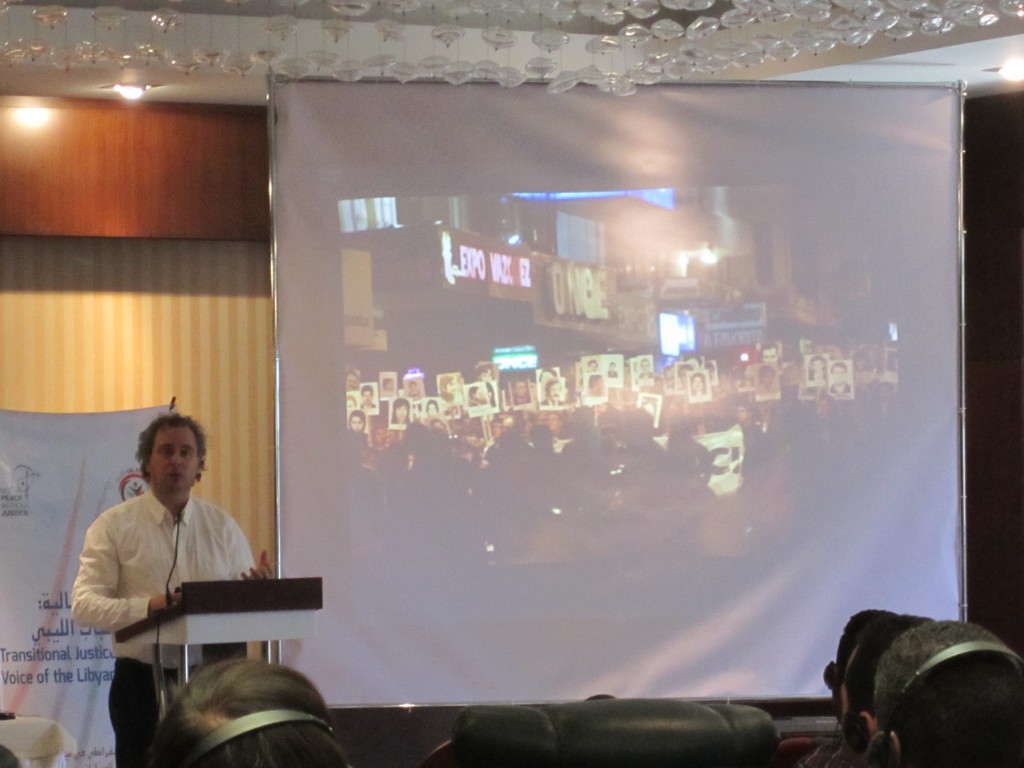By Tom Westcott.

Tripoli, 19 March 2013:
Lawyers, including judges and prosecutors, are being taught how forensic evidence can be used in cases . . .[restrict]involving political violence.
Some 50 advocates are learning about a range of forensic skills, including techniques for surveying and excavating mass graves and recovering human remains, as well as analysing and identifying them. The course will also look at the preparation of reports and ways of presenting forensic evidence in court.
The five-day event is being run at the Ministry of Justice by the Argentine Forensic Anthropology Team (EAAF). This is an NGO that was set up in Argentina in 1984 to deal with some 30,000 cases of missing persons, the South American country’s legacy from six dictators. EAAF has also worked in Columbia and Mexico.
“Physical evidence is very important in cases of political crimes,” Luis Fondebrider from EAAF told the Libya Herald, “because people lie, and people forget.”
Forensic skills are particularly useful when looking into crimes committed a long time ago. “Identifying skeletons is much harder than actual bodies,” Fondebrider said, “so DNA has been playing an increasingly important role.”
Organised by the international NGO No Peace Without Justice (NPWJ) in cooperation with the Ministry of Justice, the training will also look at how to work with the families of missing persons.
“It is terrible for families not to know if someone is alive or dead, not to have a body or a grave,” Fondebrider said, “every family has the right to know what happened to a loved one.” [/restrict]






